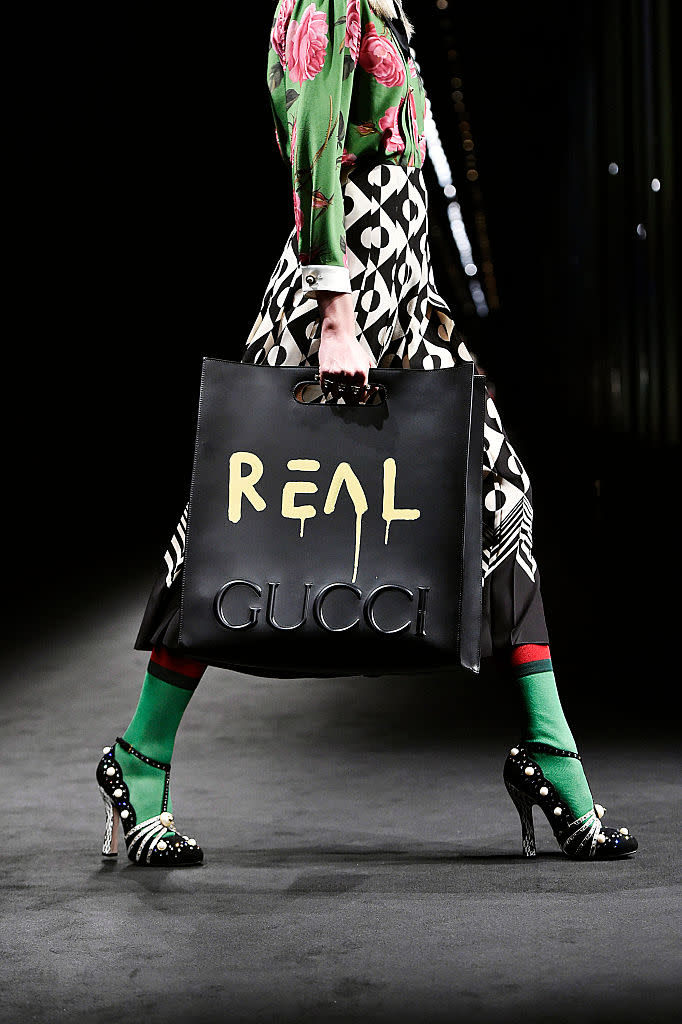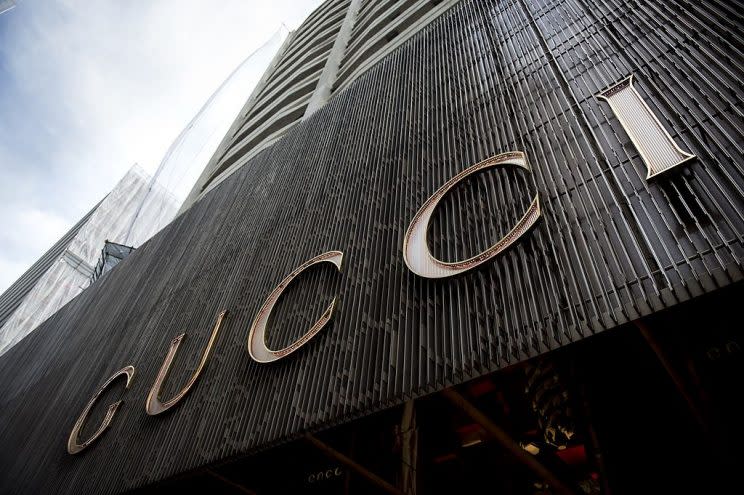How People Evade Taxes to Buy Gucci

Over lunch, two girlfriends swapped stories about recent successful shopping trips. One, a young professional who had just started work in the fashion industry, let her friend in on a score she thought too good not to share.
The woman explained how she had bought a Gucci SoHo disco bag for hundreds less than she’d have expected to pay otherwise. As a source close — very close — to the author recounted:
“I couldn’t believe it. I was going back and forth about it, and I’d saved for the bag anyway, but the discount was too good to pass up. The sales guy told me, ‘You know, if you have relatives in another state, you can ship the bag to them. That way, you don’t pay the New York sales taxes! It’ll save you a ton.'”
The woman said that she quickly agreed to the deal, excited that she’d be able to afford the designer bag more easily.
But there’s a wrinkle to the story: Preoccupied by thoughts of outfits she’d plan to wear with her new purse, she didn’t realize that she’d just casually agreed to evade taxes.
“Yeah, that’s illegal,” James Gazzale, spokesperson for the New York State Department of Taxation and Finance, confirmed to Yahoo Style. “In most instances, when you purchase a taxable item or service in the state, or if it is delivered to you in the state, the seller will collect sales tax from you. The seller then pays the tax over to the Tax Department,” Gazzale explained.
It’s not exactly within the realm of the law, but sellers can shift the onus onto the buyer to worry about paying the tax, even after the sale. If a seller makes a sale without charging the sales tax, the buyer then has to pay something called the “use tax” when filing his or her taxes each year.
That seems like a lot of trouble to go to for savings on a luxury item. The New York State sales tax, only 4 percent, is among the lowest in the country; but when combined with the New York City local sales tax, consumers pay a total of 8.875 percent on clothing and accessories over $110, making it one of the highest combined sales tax rates in the country. So, for that secondhand $975 Gucci disco bag, you’re avoiding an extra $110 tacked onto your bill.
New York isn’t the only metropolitan area where shoppers try to avoid taxes on clothing. In Chicago, the 10.25 percent combined sales tax is enough to make people living in the city go all the way to suburbia to do their shopping.
Gazalle said that his department doesn’t have exact numbers on how many people buy luxury items without paying sales taxes, which seems striking until you realize how onerous that task would be; the department would also have to track online sales, which don’t always include sales tax on the total.
In 2010, a bill called the Main Street Fairness Act was proposed in Congress, which would have compelled out-of-state retailers to tack on the sales tax of the state to which an item was going to be shipped; it would then be remitted to the state itself. The bill expired before it could be enacted, though.
There are plenty of secondhand designer retailers in New York City, but many, worried about IRS trouble, avoid the tax issue altogether. Vintage designer retailer What Goes Around Comes Around has retail locations in New York, Florida, and California, and notes on their website, “We are required to collect local sales tax in California, New Jersey & New York.”

Michael’s, an Upper East Side designer consignment store, might ship an item out of state for a customer, but it doesn’t offer any kind of out-of-state tax discount, per store policy.
“We don’t accept cash, and we don’t play with taxes,” says Tammy Gates, Michael’s vice president. “Do people try to ask for discounts based on New York City sales tax? Maybe, though certainly none of our regulars, since we don’t play in that game. We charge a tax for everything that’s purchased from our store, whether you live in New York City or not.”
Of course, looking for ways to cut costs isn’t restricted to shopping within the U.S. Shoppers have tried to exploit the U.S. dollar — which has regained strength since the financial crisis — when they travel abroad. Because some currencies, like the British pound after the Brexit referendum, are weaker than the U.S. dollar, purchasing luxury items (say, a Burberry jacket) while in London means saving on the exchange rate.
As Racked explains: “A pair of heeled Gucci loafers, currently available on Net-a-Porter, currently cost £420 — $580 at current exchange rates. A month ago, they would have cost you about $613. A metallic jacquard Mary Katrantzou dress from Selfridges, which goes for £1,785, translates to $2,468 at the moment — down from roughly $2,606 last month.”
On this, Gazalle says that if New Yorkers buy that Burberry trench in Europe, they’ll owe the use tax when they come back to the U.S., something not included in the price if the person is carrying the item back in his or her luggage.
Good news to anyone — especially that source close to this author — worried about an IRS audit or fine: You haven’t committed tax evasion until you file your taxes this year, assuming that you leave off the purchases for which you owe the use tax. As if tax season weren’t stressful enough…
Alexandra Mondalek is a writer for Yahoo Style. Follow her on Twitter @amondalek.
Related: $2 Billion of Retail Fraud Could Be Ruining Nordstrom’s Legendary Return Policy
Let’s keep in touch. Follow Yahoo Style on Instagram, Facebook, and Pinterest for inspiration delivered fresh to your feed, every day.

